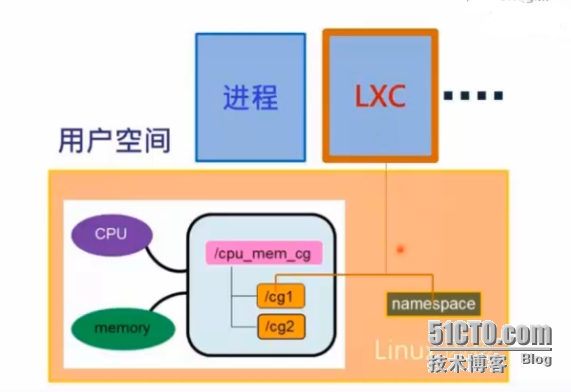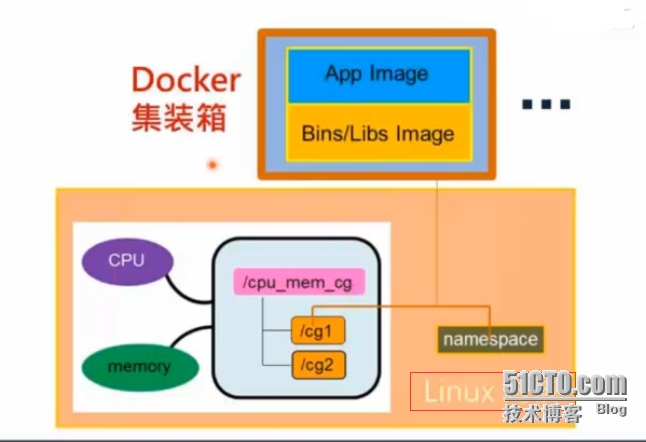一、简介
Docker 是一个开源的应用容器引擎,让开发者可以打包他们的应用以及依赖包到一个可移植的容器中,然后发布到任何流行的 Linux 机器上,也可以实现虚拟化。容器是完全使用沙箱机制,相互之间不会有任何接口(类似 iPhone 的 app)。几乎没有性能开销,可以很容易地在机器和数据中心中运行。
Docker的理念:一个容器只运行一个服务
Docker官网口号包含了Build,Shipand Run Any App,Anywhere,即任何应用,都可以构建、发布、运行于任何环境,将环境的影响因素降至最低,统一地掌控整个应用的生命周期。
Docker的官方文档:http://docs.docker.com/
二、安装
1、安装epel源
注释:默认CentOS6.x提供的yum源里没有docker的安装包,在这里我们借助EPEL源。
# rpm -ivh http://dl.fedoraproject.org/pub/epel/6/x86_64/epel-release-6-8.noarch.rpm
# sed -i 's@^#@@' /etc/yum.repos.d/epel.repo
# sed -i 's@mirrorlist@#mirrorlist@' /etc/yum.repos.d/epel.repo
2、安装docker
# yum -y remove docker
# yum install docker-io
3、启动docker守护进程
# service docker start
# chkconfig docker on
4、检查docker是否已经正确安装并运行
# docker info
5、查看docker的版本
# docker -v三、命令参数
1、docker命令帮助参数
[root@localhost ~]# docker
Usage: docker [OPTIONS] COMMAND [arg...]
Commands:
attach Attach to a running container
build Build an p_w_picpath from a Dockerfile
commit Create a new p_w_picpath from a container's changes
cp Copy files/folders from a container's filesystem to the host path
create Create a new container
diff Inspect changes on a container's filesystem
events Get real time events from the server
exec Run a command in a running container
export Stream the contents of a container as a tar archive
history Show the history of an p_w_picpath
p_w_picpaths List p_w_picpaths
import Create a new filesystem p_w_picpath from the contents of a tarball
info Display system-wide information
inspect Return low-level information on a container
kill Kill a running container
load Load an p_w_picpath from a tar archive
login Register or log in to a Docker registry server
logout Log out from a Docker registry server
logs Fetch the logs of a container
port Lookup the public-facing port that is NAT-ed to PRIVATE_PORT
pause Pause all processes within a container
ps List containers
pull Pull an p_w_picpath or a repository from a Docker registry server
push Push an p_w_picpath or a repository to a Docker registry server
restart Restart a running container
rm Remove one or more containers
rmi Remove one or more p_w_picpaths
run Run a command in a new container
save Save an p_w_picpath to a tar archive
search Search for an p_w_picpath on the Docker Hub
start Start a stopped container
stop Stop a running container
tag Tag an p_w_picpath into a repository
top Lookup the running processes of a container
unpause Unpause a paused container
version Show the Docker version information
wait Block until a container stops, then print its exit code2、比较常用命令参数
查看Docker的版本信息 # docker version 在Docker Hub上搜索一个指定镜像 # docker search 在Docker Hub上搜索一个指定镜像并至少有10颗星 # docker search -s 10 ubuntu 从一个Docker的注册服务器上拉取一个镜像或一个私有仓库 # docker pull ubuntu 查看镜像列表 # docker p_w_picpaths 在一个新的容器中运行一个命令 # docker run 移除一个或多个镜像 # docker rmi 移除一个或多个容器 # docker rm 附着一个运行的容器 # docker attach 运行一个命令在一个运行的容器中 # docker exec 从一个Dockerfile文件中构建一个镜像 # docker build 查看镜像构建历史 # docker history 查看容器更为详细的配置信息 # docker inspect 保存一个镜像对归档tar中 # docker save 从一个归档tar中加载一个镜像 # docker load 启动、停止、重启一个运行的容器 # docker start| stop| restart 杀掉一个正在运行的容器 # docker kill 额外补充 进入容器命令: docker attach:登陆到运行的容器中 docker exec:在宿主机上运行命令到容器内部,类似在打开一个容器的终端 docker nsenter:连接到容器,需要容器PID
四、创建ssh镜像和镜像打包
1、从Docker Hub上下载ubuntu镜像
[root@localhost ~]# docker pull ubuntu:14.04 [root@localhost ~]# docker p_w_picpaths REPOSITORY TAG IMAGE ID CREATED VIRTUAL SIZE ubuntu 14.04 b7cf8f0d9e82 3 days ago 188.3 MB
2、基于镜像创建一个容器
[root@localhost ~]# docker run -it ubuntu:14.04 /bin/bash [root@localhost ~]# docker ps -a CONTAINER ID IMAGE COMMAND CREATED STATUS PORTS NAMES 88b6a8dfae4e ubuntu:14.04 "/bin/bash" 3 minutes ago Up 3 minutes modest_yalow
3、进入容器安装ssh服务
root@88b6a8dfae4e:/# apt-get update && apt-get install -y openssh-server root@0af7ccfd906e:/# echo 'root:redhat' | chpasswd root@10dbbd22172d:/# mkdir /var/run/sshd root@10dbbd22172d:/# sed -i 's/PermitRootLogin without-password/PermitRootLogin yes/' /etc/ssh/sshd_config root@10dbbd22172d:/# sed 's@session\s*required\s*pam_loginuid.so@session optional pam_loginuid.so@g' -i /etc/pam.d/sshd root@10dbbd22172d:/# exit [root@localhost ~]# docker ps -l CONTAINER ID IMAGE COMMAND CREATED STATUS PORTS NAMES 88b6a8dfae4e ubuntu:14.04 "/bin/bash" 10 minutes ago Exited (130) 18 seconds ago modest_yalow
4、构建一个ssh的镜像
[root@localhost ~]# docker commit 88b6a8dfae4e zhengyas/ubuntu:sshd 3f2225df36ff67cbda098318e83128f3965758eba3e4609a094c172b0c3b03c4 [root@localhost ~]# docker p_w_picpaths REPOSITORY TAG IMAGE ID CREATED VIRTUAL SIZE zhengyas/ubuntu sshd 3f2225df36ff 21 seconds ago 251.1 MB ubuntu 14.04 b7cf8f0d9e82 3 days ago 188.3 MB
5、基于新镜像运行一个ssh容器
[root@localhost ~]# docker run -d -p 2222:22 zhengyas/ubuntu:sshd /usr/sbin/sshd -D 7ef47903cdb77ad9d98fd0dd3b102473d10ad3abea5311c030177db9ea9984c1 [root@localhost ~]# docker ps -l CONTAINER ID IMAGE COMMAND CREATED STATUS PORTS NAMES 7ef47903cdb7 zhengyas/ubuntu:sshd "/usr/sbin/sshd -D" 4 seconds ago Up 4 seconds 0.0.0.0:2222->22/tcp hungry_ritchie
6、测试ssh容器是否能够正常连接
[root@localhost ~]# ssh root192.168.0.104 -p 2222 ssh: Could not resolve hostname root192.168.0.104: Name or service not known [root@localhost ~]# ssh root@192.168.0.104 -p 2222 The authenticity of host '[192.168.0.104]:2222 ([192.168.0.104]:2222)' can't be established. RSA key fingerprint is 0e:1e:4e:67:f3:4b:5a:c4:c2:f5:7b:e7:f0:2e:14:72. Are you sure you want to continue connecting (yes/no)? yes Warning: Permanently added '[192.168.0.104]:2222' (RSA) to the list of known hosts. root@192.168.0.104's password: Welcome to Ubuntu 14.04 LTS (GNU/Linux 3.2.0-61-generic x86_64) * Documentation: https://help.ubuntu.com/ The programs included with the Ubuntu system are free software; the exact distribution terms for each program are described in the individual files in /usr/share/doc/*/copyright. Ubuntu comes with ABSOLUTELY NO WARRANTY, to the extent permitted by applicable law. root@7ef47903cdb7:~# ifconfig eth0 Link encap:Ethernet HWaddr 02:42:ac:11:00:03 inet addr:172.17.0.3 Bcast:0.0.0.0 Mask:255.255.0.0 inet6 addr: fe80::42:acff:fe11:3/64 Scope:Link UP BROADCAST RUNNING MTU:1500 Metric:1 RX packets:47 errors:0 dropped:0 overruns:0 frame:0 TX packets:40 errors:0 dropped:0 overruns:0 carrier:0 collisions:0 txqueuelen:0 RX bytes:5638 (5.6 KB) TX bytes:6521 (6.5 KB) lo Link encap:Local Loopback inet addr:127.0.0.1 Mask:255.0.0.0 inet6 addr: ::1/128 Scope:Host UP LOOPBACK RUNNING MTU:65536 Metric:1 RX packets:0 errors:0 dropped:0 overruns:0 frame:0 TX packets:0 errors:0 dropped:0 overruns:0 carrier:0 collisions:0 txqueuelen:0 RX bytes:0 (0.0 B) TX bytes:0 (0.0 B)
7、镜像持久化,俗称镜像打包
镜像打包(Save)
[root@localhost ~]# docker save zhengyas/ubuntu > /root/sshd.tar
镜像导入(Load)
实验模拟 1、删除此sshd容器 [root@localhost ~]# docker ps -a CONTAINER ID IMAGE COMMAND CREATED STATUS PORTS NAMES 7ef47903cdb7 zhengyas/ubuntu:sshd "/usr/sbin/sshd -D" 14 minutes ago Up 14 minutes 0.0.0.0:2222->22/tcp hungry_ritchie [root@localhost ~]# docker stop 7ef47903cdb7 7ef47903cdb7 [root@localhost ~]# docker rm 7ef47903cdb7 7ef47903cdb7 2、删除sshd镜像 [root@localhost ~]# docker rmi zhengyas/ubuntu:sshd Untagged: zhengyas/ubuntu:sshd Deleted: 3f2225df36ff67cbda098318e83128f3965758eba3e4609a094c172b0c3b03c4 [root@localhost ~]# docker p_w_picpaths REPOSITORY TAG IMAGE ID CREATED VIRTUAL SIZE ubuntu 14.04 b7cf8f0d9e82 3 days ago 188.3 MB 3、导入打包的镜像 [root@localhost ~]# docker load < /root/sshd.tar [root@localhost ~]# docker p_w_picpaths REPOSITORY TAG IMAGE ID CREATED VIRTUAL SIZE zhengyas/ubuntu sshd 3f2225df36ff 18 minutes ago 251.1 MB ubuntu 14.04 b7cf8f0d9e82 3 days ago 188.3 MB
五、基于Dockerfile来创建mysql镜像
1、创建Dockerfile文件
[root@localhost ~]# mkdir mysql_ubuntu [root@localhost ~]# cd mysql_ubuntu/ [root@localhost mysql_ubuntu]# cat Dockerfile FROM ubuntu:14.04 RUN apt-get update RUN apt-get -y install mysql-client mysql-server RUN sed -i -e"s/^bind-address\s*=\s*127.0.0.1/bind-address = 0.0.0.0/" /etc/mysql/my.cnf ADD ./startup.sh /opt/startup.sh EXPOSE 3306 CMD ["/bin/bash", "/opt/startup.sh"]
2、创建mysql服务启动脚本文件
[root@localhost mysql_ubuntu]# cat startup.sh #!/bin/bash if [ ! -f /var/lib/mysql/ibdata1 ]; then mysql_install_db /usr/bin/mysqld_safe & sleep 10s echo "GRANT ALL ON *.* TO admin@'%' IDENTIFIED BY 'changeme' WITH GRANT OPTION; FLUSH PRIVILEGES" | mysql killall mysqld sleep 10s fi /usr/bin/mysqld_safe
3、构建mysql镜像
# docker build -t zhengys/mysql .
4、查看镜像
[root@localhost ~]# docker p_w_picpaths REPOSITORY TAG IMAGE ID CREATED VIRTUAL SIZE zhengys/mysql latest f58add96ecb7 About a minute ago 338.9 MB
6、基于新镜像创建mysql容器
[root@localhost ~]# mkdir /data/mysql -p [root@localhost ~]# docker run -d -p 3306:3306 -v /data/mysql:/var/lib/mysql zhengys/mysql 0112ba90e4a30a13e4f3af26f4a5bcd73e91ae3afa881a36fadd34cd953d0ada [root@localhost ~]# docker ps -l CONTAINER ID IMAGE COMMAND CREATED STATUS PORTS NAMES 0112ba90e4a3 zhengys/mysql:latest "/bin/bash /opt/star 4 seconds ago Up 3 seconds 0.0.0.0:3306->3306/tcp reverent_hawking [root@localhost ~]# ll /data/mysql/ total 28680 -rw-rw----. 1 103 106 18874368 Apr 25 17:46 ibdata1 -rw-rw----. 1 103 106 5242880 Apr 25 19:09 ib_logfile0 -rw-rw----. 1 103 106 5242880 Apr 25 17:45 ib_logfile1 drwx------. 2 103 root 4096 Apr 25 17:45 mysql drwx------. 2 103 106 4096 Apr 25 17:45 performance_schema
7、测试mysql容器
[root@localhost ~]# mysql -uadmin -p123456 -h192.168.0.104 -P 3306 -e 'show databases' +--------------------+ | Database | +--------------------+ | information_schema | | mysql | | performance_schema | +--------------------+
或者提供一个登陆mysql客户端脚本
run-client.sh
#!/bin/sh
TAG="mysql"
CONTAINER_ID=$(docker ps | grep $TAG | awk '{print $1}')
IP=$(docker inspect $CONTAINER_ID | python -c 'import json,sys;obj=json.load(sys.stdin);print obj[0]["NetworkSettings"]["IPAddress"]')
mysql -u admin -p -h $IP
六、简化Docker和lxc
1、Lxc和Docker结构图
Linux = linux内核 + 用户空间(Lxc)
Lxc(Linux Container):linux容器 = Cgroup + Namespaces
Docker集装箱 = Lxc + p_w_picpaths
lxc功能包括资源管理和隔离机制。
资源管理:通过cgroup限制cpu和内存的使用
隔离机制:用户空间namespace都是独立的
LXC包集成了这些linux内核机制提供了一个用户空间容器对象,即是针对某一应用提供资源隔离和控制轻量级虚拟系统。
Docker对container的使用基本是建立在lxc基础之上的,然而lxc存在的问题是难以移动-难以通过标准化模板制作、重建、复制和移动container。
LXC依赖namespace来实现隔离性的。
让每个容器都有自已的命名空间,确保不同容器之间不会相互影响,让每个容器成为拥有自已进程和网络空间的虚拟环境,都成为一个独立运行的单位。
此外,lxc由内核cgroup来对各个容器(进程)使用的系统资源做严格的限制。
算算时间,学习Docker也有半个月时间了,到现在为止给我的第一感觉仍然是不习惯,或许是用传统虚拟化用习惯了,或许是自已对Docker研究过于肤浅,或许自已根本没有入门等等一些原因,在没有接触到Docker之前自已玩过lxc,使用起来特别顺手,网上都说Docker自动化了lxc的管理过程,能够自动在线下载相应的发行版本rootfs
Docker的火热程度,使我们做IT的不得不去深入研究、学习
好吧!今天就先到这里,后续会继续更大家聊聊Docker技术.
转载于:https://blog.51cto.com/467754239/1638301























 1600
1600

 被折叠的 条评论
为什么被折叠?
被折叠的 条评论
为什么被折叠?








